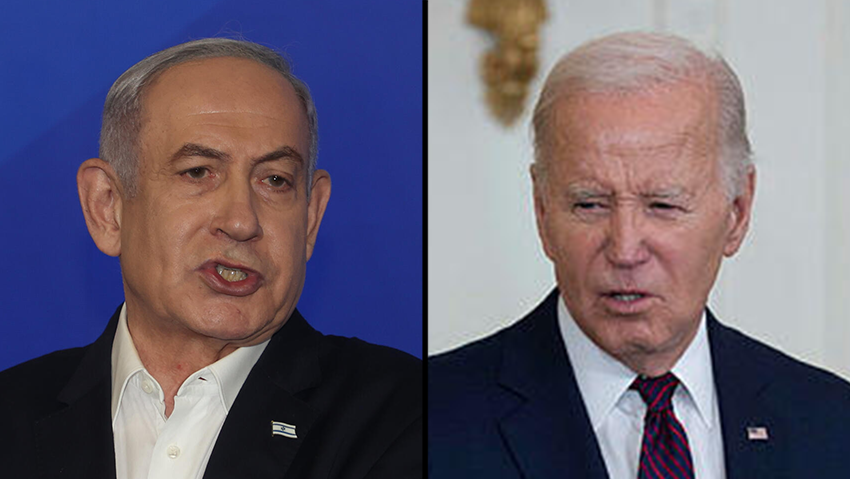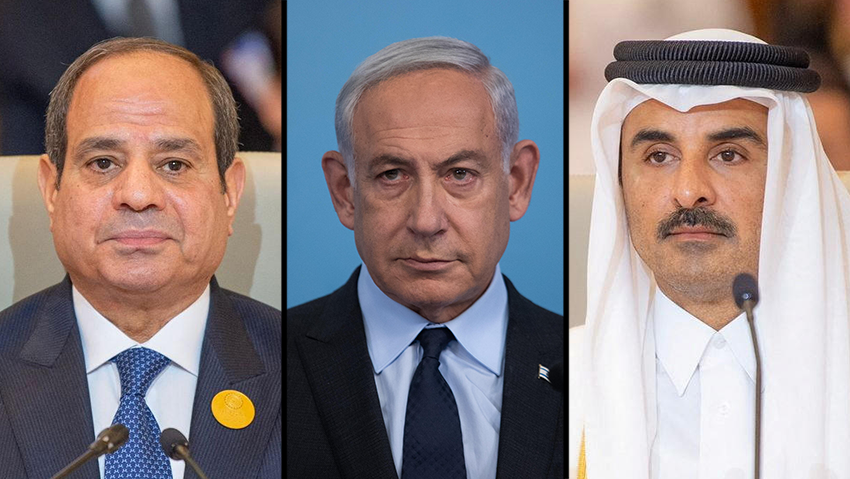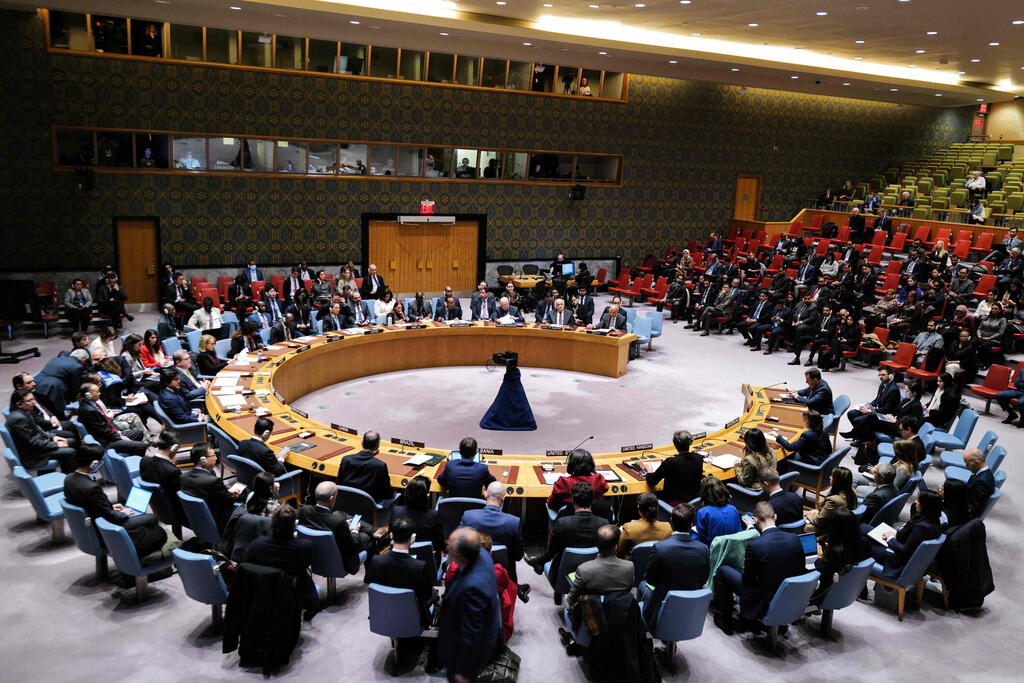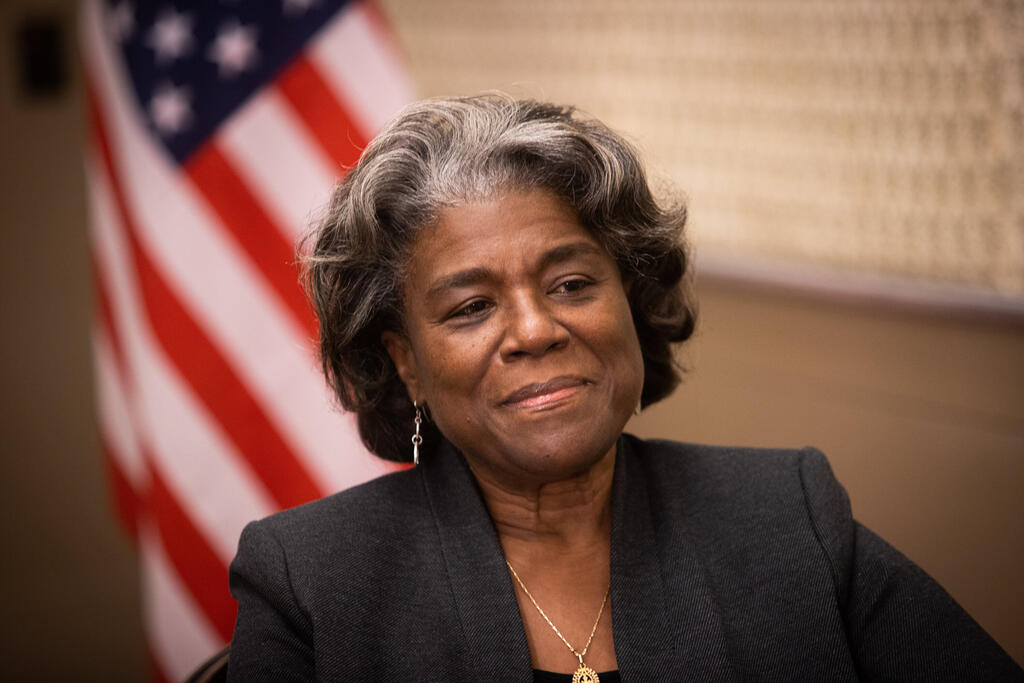Getting your Trinity Audio player ready...
The U.S. has proposed an alternative draft resolution in the United Nations Security Council resolution calling for a temporary cease-fire in the Israel-Hamas war and opposing a major Israeli ground offensive in Rafah in southern Gaza, Reuters reported Monday. The American initiative troubles Israel because it's the first time during the current war that the U.S. has acted directly against Israel's plans in the United Nations.
Senior U.S. administration official says no rush to vote on us-drafted un security council resolution on Gaza, U.S. intends to allow time for negotiations. "We do not plan to rush our text to a vote. We don't believe a rush to a vote is necessary or constructive and intend on allowing time for negotiations," a senior U.S. administration official, speaking on condition of anonymity, said on Monday.
Read more:
The U.S. proposal addresses the ban on establishing buffer zones, and trying to reduce the area of the Strip - temporarily or permanently. According to Reuters, it is not yet clear when the Security Council members will vote on the proposed resolution. The U.S. submitted its plan after Algeria, one of the temporary members of the council. Algeria asked the 15 members of the council to vote on Tuesday on its proposal, which would require an immediate humanitarian cease-fire.
The proposal submitted by the U.S. is intended, among other things, to prevent the members of the Security Council from voting in favor of the Algerian proposal. The U.S. is likely to veto the Algerian proposal, which calls for an immediate cease-fire, ensuring that it does not pass.
Although the wording of the U.S. proposal is not final, it worries Israel. It uses the term "forced displacement" to describe civilians in Gaza; connects the welfare of the hostages to the welfare of the civilian population in Gaza, and warns that if the war in Gaza does not stop, it risks an escalation in Jerusalem and the West Bank during the Muslim holy month of Ramadan.
The U.S. draft text "determines that, under current circumstances, a major ground offensive into Rafah would result in further harm to civilians and their further displacement including potentially into neighboring countries."
4 View gallery


Biden and Netanyahu spoke frequently during war
(Photo: AP Photo/Evan Vucci, Yariv Katz)
While Israel plans to operate in Rafah, where more than 1 million of the 2.3 million Palestinians in Gaza have sought shelter, the international community is concerned that such a move would sharply worsen the humanitarian crisis in Gaza. The draft U.S. resolution says such a move "would have serious implications for regional peace and security, and therefore underscores that such a major ground offensive should not proceed under current circumstances."
It was not immediately clear when or if the draft resolution would be put to a vote in the 15-member council. A resolution needs at least nine votes in favor and no vetoes by the permanent members of the council - United States, France, Britain, Russia or China - to be adopted.
American UN intricacies
Algeria put forward an initial draft resolution more than two weeks ago. But U.S. Ambassador to the UN Linda Thomas-Greenfield said the text could jeopardize "sensitive negotiations" on hostages. The U.S., Egypt, Israel and Qatar are seeking to negotiate a pause in the war and the release of hostages held by Hamas.
4 View gallery


U.S. reportedly tries to block Algerian plan with its own plan for Gaza
(Photo: Reuters/ Saudi Press Agency/Handout, Reuters/ Saudi Press Agency/Handout, Alex Kolomoisky)
Usually, Washington shields Israel from U.N. action and has twice vetoed council resolutions since Oct. 7. However, it has also abstained twice, allowing the council to adopt resolutions that aimed to boost aid to Gaza and called for urgent and extended humanitarian pauses in fighting. The proposal appears to be an American warning to the Israelis - if you don't behave as we expect, we will join the rest of the world.
The draft U.S. text would condemn calls by some Israeli government ministers for Jewish settlers to move to Gaza and would reject any attempt at demographic or territorial change in Gaza that would violate international law.
The resolution would also reject "any actions by any party that reduce the territory of Gaza, on a temporary or permanent basis, including through the establishment officially or unofficially of so-called buffer zones, as well as the widespread, systematic demolition of civilian infrastructure."
Reuters reported in December that Israel told several Arab states that it wants to carve out a buffer zone inside Gaza's borders to prevent attacks as part of proposals for the enclave after the war ends.
In December, more than three-quarters of the 193-member U.N. General Assembly voted to demand an immediate humanitarian cease-fire. General Assembly resolutions are not binding but carry political weight, reflecting a global view on the war.



